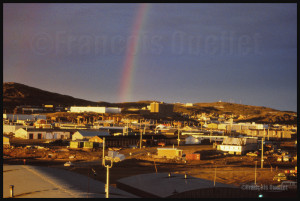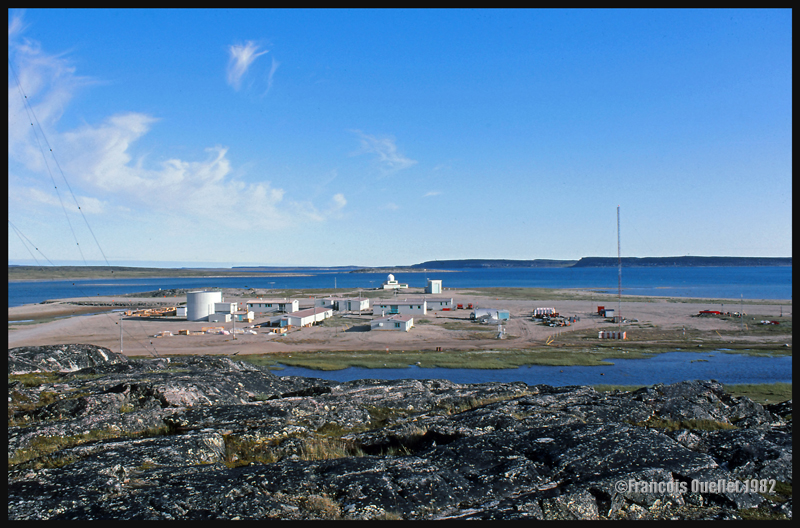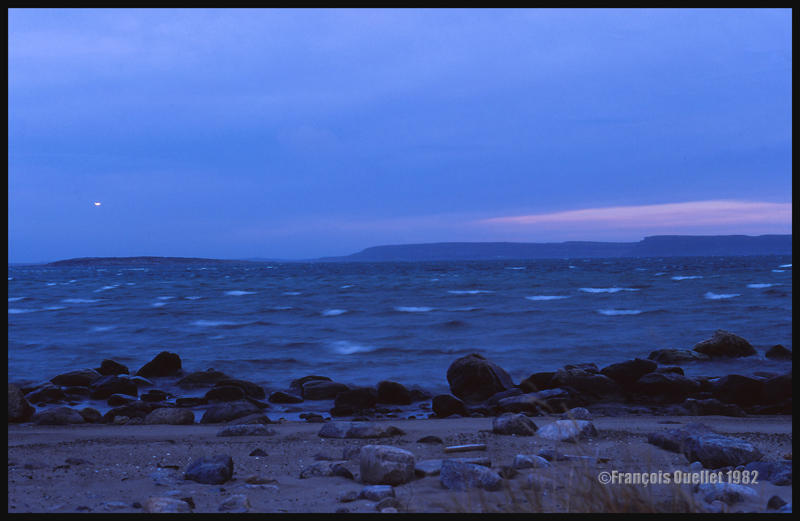(Precedent story: two airline captains forced to delay their departure from Iqaluit)

Iqaluit, Nunavut, 1990. One day, just as I was getting out for a walk, a young lady came to me asking that I catch a thief who had just stolen her handbag. Such a request coming from somebody living in a huge city would not have been surprising, but I never thought that I would hear that in a small city like Iqaluit. I initially thought it was a joke and wondered where the hidden cameras where positioned but when I turned around, I saw a man running away with something in his hand.
I instinctively started running after the man and, as I was closing in on him, he had a choice to make: he either slowed down and I caught up with him or he kept the pace while going down a slope made of huge rocks with sharp edges. He chose the second option and started jumping from one rock to the other, lost his balance, and fell head first against the rocks.
Still lying down and with blood all over his face, he saw me closing in progressively until I was just beside him. I requested the bag but he refused to give it back. He certainly expected me to beat him up, but I was not there to give anybody a lesson. I waited a bit, until he calmed down. I then asked him a second time to give me the handbag. He finally agreed.
The man stood back up, barely noticing the blood he had on his face. Without saying a word, he started following me while I was slowly going uphill to meet the lady. Every now and then, I turned around to ensure that he was not coming toward me with a knife or a rock in his hand. Once on flat ground, I meet the lady and give her the handbag. Eventually, the thief caught up with us and the lady started shouting at him, using me as a shield in case the man lost his temper. I did not need another crisis now that everything was settled.
When she was done with him, the thief tried to get closer to me. I made sure to keep the length of an arm between the two of us in order to avoid a sucker punch. I had trouble understanding that after such an incident, the man had chosen to walk with us, like nothing ever happened. He finally said his first words: “You run fast, like Ben Johnson!”
Finally, after a short walk, the three of us arrived exactly where everything had initially started. The incident had been dealt with and the lady decided that she would not call the police. She went away after thanking me, the man returned to the bar where he came from, and I was finally able to take a walk in Iqaluit’s peaceful atmosphere, few hours before going back to work at the Transport Canada flight service station (FSS).
(Next story: two Polish asylum seekers in Iqaluit)
For more real life stories as a FSS in Iqaluit, click on the following link: Flight service specialist (FSS) in Iqaluit

